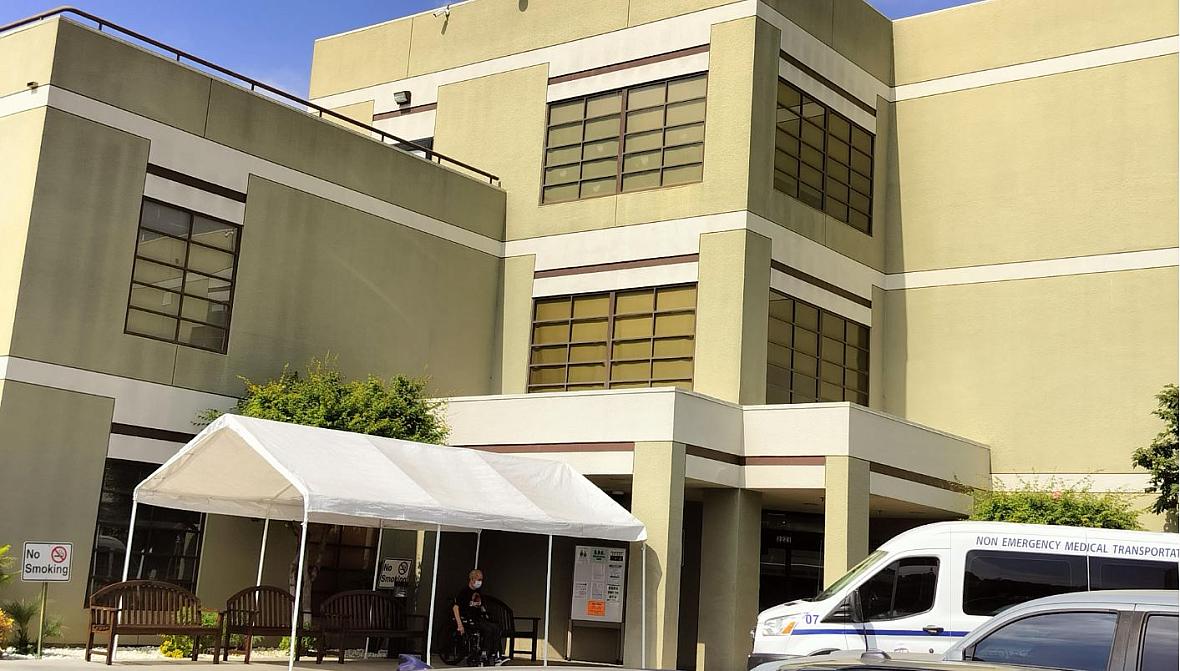For-profit nursing homes blamed for declining care
The story was originally published by AsAmNews with support from our 2024 California Health Equity Impact Fund.

By Alan Oda
Joyce Mayauchi Valenzuela makes a weekly 45-mile drive from Santa Clarita, California to Gardena to voluntarily bring bento box lunches to her parents and six other residents at Clearview Memory Care.
Her 70-minute drive is one of two Japanese meal deliveries families make each week that the Japanese American seniors really appreciate.
“So now they’re getting a little bit of Japanese food in their daily lives,” explained Joyce’s sister, Margaret Leong. “It’s made a big impact on those seniors.”
Culturally sensitive care was something her parents Takeyuki and Kazuko Miyauchi had gotten used to having lived at Sakura Gardens, a facility run by the Japanese American non-profit Keiro Senior Healthcare.
Keiro decided it could no longer afford to run the facility and three others it owned for decades. The state attorney general’s office, under then-Attorney General Kamala Harris, approved the sale in 2016 to Pacifica and its subsidiaries including Aspen Skilled Health Care for $41 million despite opposition from the Japanese American community.
The facilities sold by Keiro were Sakura Gardens, Sakura Intermediate Care Facility which is now closed, Kei-Ai South Bay and Kei-Ai Los Angeles.
Impact of sale to for-profit
Eight years later, critics of the sale point to the 115 COVID deaths at Kei-Ai Los Angeles as a reason the facilities should not have been sold to the for-profit companies.
The skilled nursing facility had by far the largest number of COVID deaths in the state of any of similar size and an AsAmNews investigation found regulators from both the state and federal government repeatedly cited Kei-Ai Los Angeles for COVID-safety protocol violations.
We reached out to both Aspen Skilled Health Care and Pacifica a total of six times for comment in the last week, but did not hear back. Pacifica is now listed in ownership records as owning the land Kei-Ai LA sits on. Aspen Skilled Health Care runs Kei-Ai Los Angeles.
A study released this past November by U.S. Health and Human Services found that quality ratings based on federal inspections declined by 14% at for-profit facilities purchased by private equity firms and Real Estate Investment Trusts nationwide. The report also states registered nursing hours declined by 12% at private equity firm facilities and 7% at REIT facilities.
“As labor wages go up and providing care goes up, you have to make hard decisions and that might mean you have to cut your operating expenses. So, you can see decreases in staffing. That’s the big issue,” said Cornell’s Robert Tyler Braun, the co-author of the study.
He pointed to information from the Center for Medicare and Medicaid Services which listed Kei-Ai Los Angeles as a candidate to be included on a list of poorest performing nursing facilities in the country.
Number of non-profit nursing homes declining
In the state of California, the Office of the State Long-Term Care Ombudsman tells AsAmNews 80% of all skilled nursing and intermediate care facilities are run by for-profit entities.
Laurel Bethel saw that firsthand. She says everything changed after the sale. Her mother lived first at Kei-Ai Los Angeles and then at Sakura Intermediate Care Facility before eventually going back to Kei-Ai as her condition worsened.
“The atmosphere changed. The rules changed,” she said. “The volunteers came in and they would visit with the patients and they would walk them, they would volunteer with programs. To do things with activities. After they sold, these volunteers disappeared.”
Bethel sat on the Community Advisory Board set up under the terms of the sale set by the Attorney General’s Office. So did Traci Toshiuki Imamura, a member of Save Our Senior, a group that opposed the sale.
Imamura criticized Pacifica for what she believes has been a decline in care at the facilities “from day one.”
“It’s a service that is expensive. So I think, you know, it’s difficult to make a profit without cutting corners somewhere,” said Imamura.
Concern about corporate dominance in skilled nursing and intermediate care facilities is growing. Since 2016, the number of non-profit facilities has declined by 26% to just 129 in California. At the same time, the number of for-profits running these facilities has remained steady over that same period.
Investigators refuse to look into 115 COVID deaths
The controversy over the sale of the former Keiro facilities caught the attention of Rep Judy Chu (D-CA). At least twice, she has publicly called for a formal investigation into the deaths at Kei-Ai by the Center for Medicare and Medicaid Services. The latest request came in the spring while AsAmNews’ conducted its own investigation into the 115 COVID deaths.
Late last month, the agency formally denied Chu’s request, saying that Kei-Ai Los Angeles will soon undergo a resident-centered inspection as part of a routine recertification process. No where in the letter did CMS address the 115 deaths or even say it would look into it.
“I’m extremely concerned that between 2015 and 2021, Kei-Ai received 105 complaints of abuse, neglect, or rights allegations, nearly 50% of which were found to be substantiated,” Chu told AsAmNews. “That is unacceptable…CMS’s response was insufficient. Our seniors, our elders, deserve to have their complaints heard, not swept under the rug.”
The lack of an investigation by the state, county and federal governments also is concerning Blanca Castro, the State Long-term Care Ombudsman.
“When things don’t go the way they’re supposed to, and people are hurt or even killed, then we do owe it to the public and to the taxpayers to investigate went wrong,” she said.
Miyauchi Valenzuela’s agrees. Her father came down with COVID during his stay at Kei-Ai Los Angeles, but recovered. She remains frustrated.
“It’s fallen on deaf ears. We don’t know where to go or what do.”
